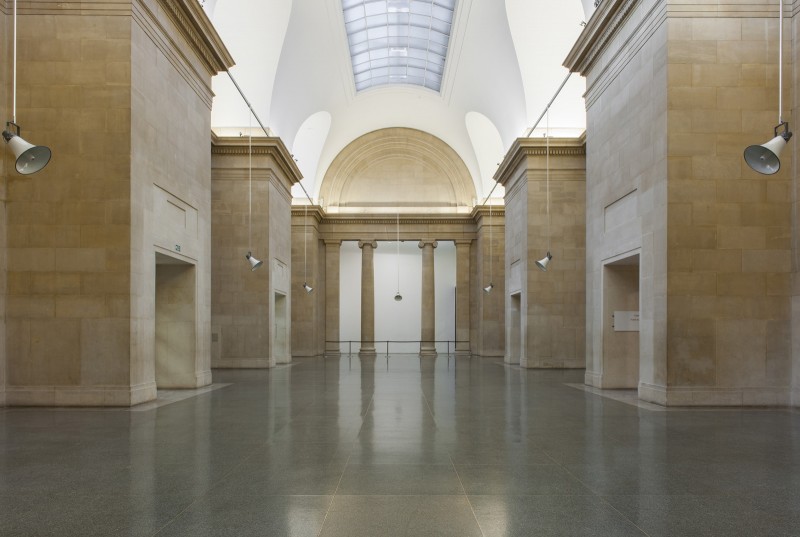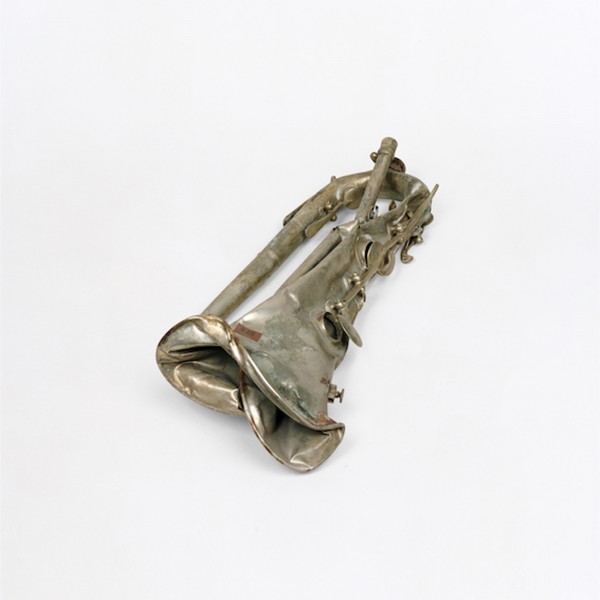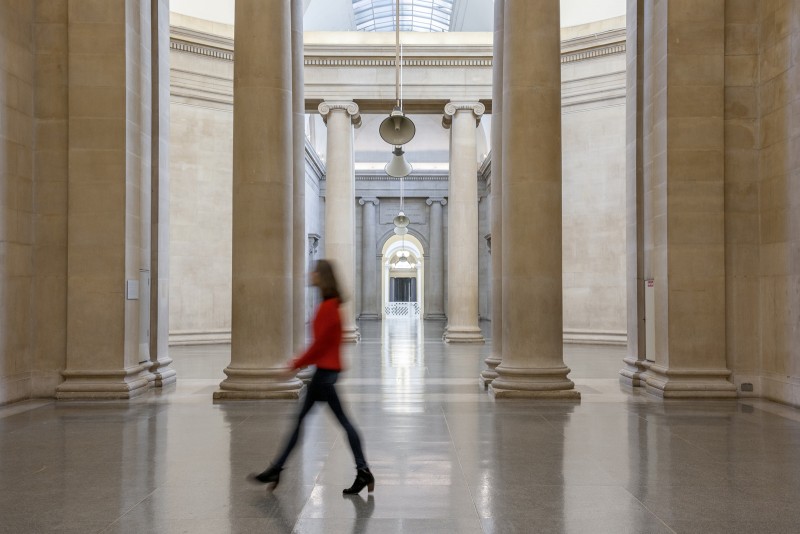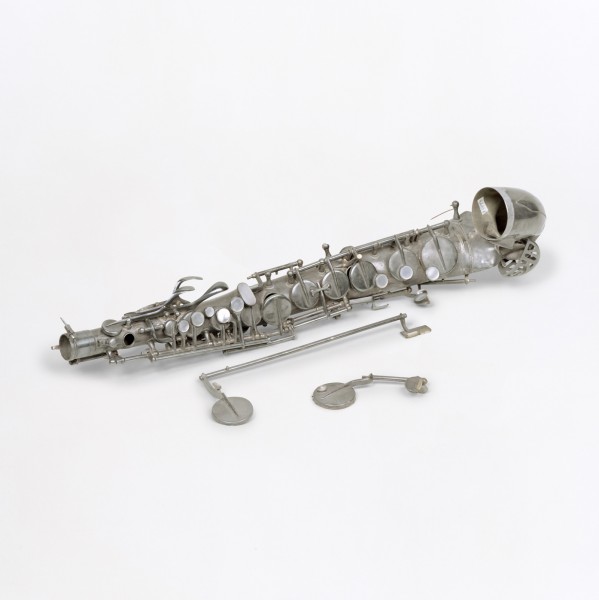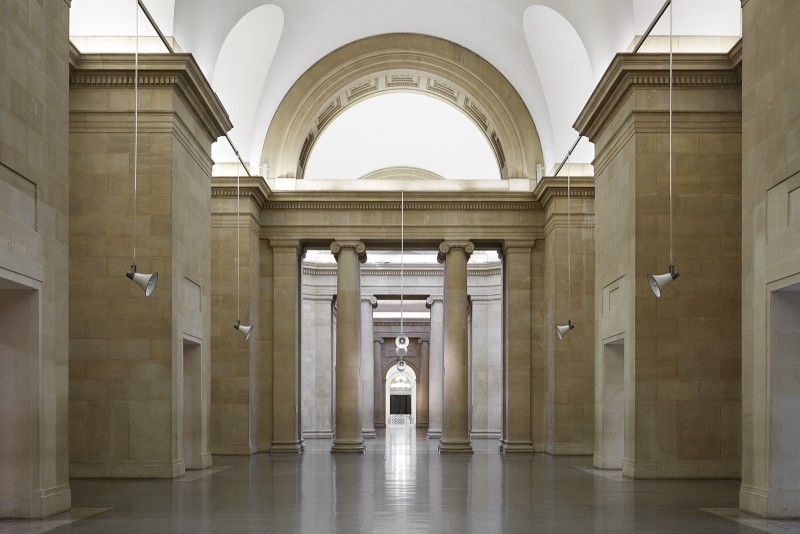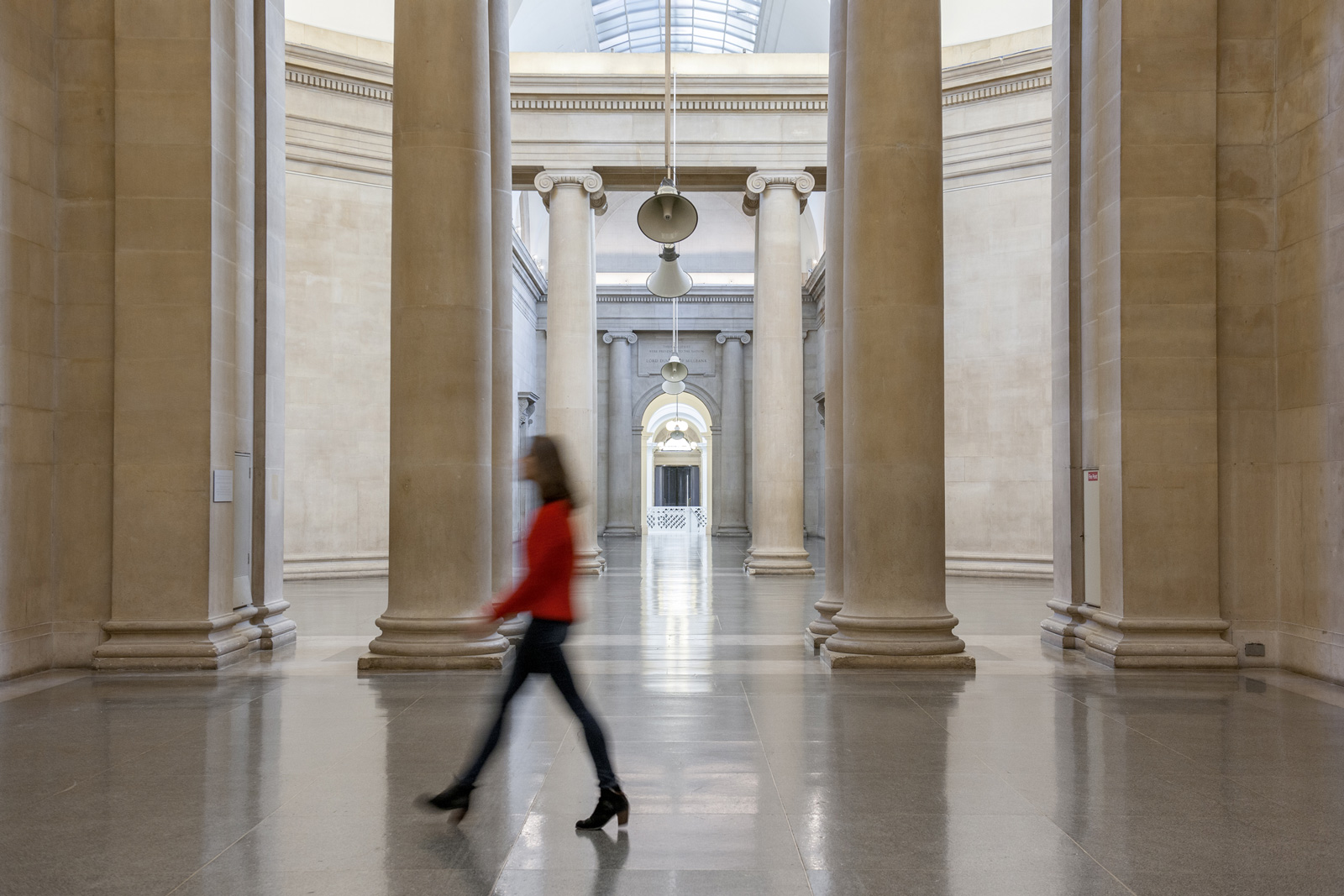Susan Philipsz
War Damaged Musical Instruments
War has always been accompanied by music. Drums, bugles, fifes and trumpets have marched generations of men and women into battle, and brought them together at its end. For this commission, artist Susan Philipsz brought to life a selection of instruments disfigured by conflict: warped by explosions, riddled by bullets, crushed under rubble.
Each wounded instrument played a single note from ‘The Last Post’, a refrain that was sounded to mark the completion of an officer’s evening checks and that now serves as a memorial to those lost in conflict. The damage inflicted upon the instruments by war bended the tune out of shape and created a moving symphony of injured sound that rang out from speakers hung through the Duveen Galleries at Tate Britain; parts of which operated as the Queen Alexandra Military Hospital during the war. Walking through the central section, visitors heard a group of instruments used during the First World War: a tuba from the German trenches and a cavalry trumpet retrieved from a ship torpedoed by a submarine in 1918.
The notes were coaxed from their instruments by musicians from Britain and Germany. Developed over a number of years by sound artist Susan Philipsz, this presentation used the power of music to connect us to the physical suffering of war. Following this presentation, the work was acquired as part of the Tate collection.
About the artist
Over the past two decades, Susan Philipsz has explored the psychological and sculptural potential of sound. The artist’s immersive environments of architecture and song heighten the visitor’s engagement with their surroundings while inspiring thoughtful introspection. The music Philipsz selects – which has ranged from sixteenth century ballads and Irish folk tunes to David Bowie’s Ziggy Stardust – responds specifically to the space in which the work is installed. While each piece is unique, the storylines and references are often recognizable, exploring familiar themes of loss, longing, hope, and return. These universal narratives trigger personal reactions while also temporarily bridging the gaps between the individual and the collective, as well as interior and exterior spaces.
Born in 1965 in Glasgow, Philipsz currently lives and works in Berlin. She received a BFA in Sculpture from Duncan of Jordanstone College in Dundee, Scotland in 1993, and an MFA from the University of Ulster in Belfast in 1994. In 2000, she completed a fellowship at MoMA PS1 in New York. She received the Turner Prize in 2010 and was awarded an OBE in 2014 for services to British art.
Commissioned by 14-18 NOW and Curated by Tate Britain
